Upcoming
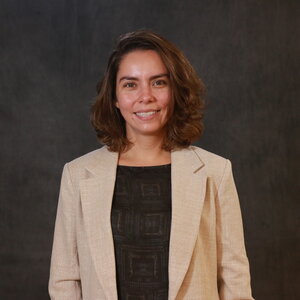
Julia Paiva
"Racial Inequalities in Brazilian Housing Policy: An Examination of Minha Casa Minha Vida”
Julia Paiva is a second year Ph.D. student in the Department of Urban and Regional Planning at the University of Illinois Urbana-Champaign. She has a doble major degree in Civil Engineering and Architecture-Urbanism at University of São Paulo and a master’s in urban planning. She previously worked as an urban planning consultant at the Inter-American Development Bank (IDB), where she has supported sustainable and resilient urban development initiatives across Latin America. Her professional and academic work focuses on housing policy, transit-oriented development, and equitable urban growth, with a deep commitment to social justice.
...

Larissa Migotto Brandolt
"The Impact of National Polarization on Local Politics in Brazil"
Larissa Migotto is a Ph.D. student in the Department of Political Science at the University of Illinois. Her academic interests lie at the intersection of political behavior and political communication. Her current research investigates the interplay between national-level polarization and local elections within Brazil's fragmented party system. The project seeks to explain how polarization discourse propagated by national elites influences political rhetoric and voter behavior at the local level.
...

Flavia Castro Motta
"Deforestation and Pasture Degradation in Brazil"
Flávia is a PhD student in the Department of Agricultural and Consumer Economics. Her broader research interests lie in conducting data-driven analyses on how to promote a sustainable balance between human needs and the preservation of natural resources.
...

Juliana Watanabe Soufen
"Community Perspectives and the Role of Social Agents in Sustainable Slum Upgrading: Reflections from the Água Legal Program in São Paulo, Brazil”
Juliana Watanabe Soufen is a Ph.D. student in Community Health in the Department of Health and Kinesiology at the University of Illinois Urbana-Champaign (UIUC). She brings over 15 years of experience in the fields of international development, project management, and research. Her academic interests focus on promoting health equity and community well-being through interdisciplinary and community-engaged approaches.
...
Current

Kainen Bell
Information Science, “Understanding the Impact of Surveillance Technologies on Afro-Brazilian Communities”
Kainen Bell is a Ph.D. student in Information Sciences, advised by Dr. Anita Say Chan. His research uncovers algorithmic biases and follows the work of digital rights activists and organizers of anti-surveillance campaigns in Brazil. He holds a Bachelor's Degrees in Social Work and Business Administration from the University of Washington in Seattle, and a Masters Degree in Social Work from Columbia University in New York.
...
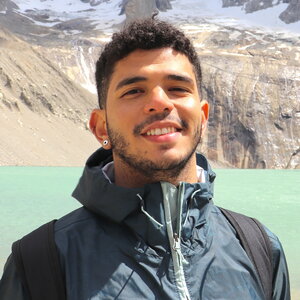
Otavio Barros
Center for Latin American and Caribbean Studies, "A Decade of the Lei de Cotas in Brazil: An Analysis of Its Effectiveness Through the Lenses of Students and Critical Race Theory"
Otavio Barros's research aims to analyze the effectiveness of Brazil's Lei de Cotas (Affirmative Action Law/Lei No. 12.711/2012) after its tenth anniversary of implementation as a federal law in the country. His study focuses on the policy's impact on higher education institutions, particularly at the Universidade Federal da Bahia (UFBA), through the lens of Critical Race Theory (CRT).
...
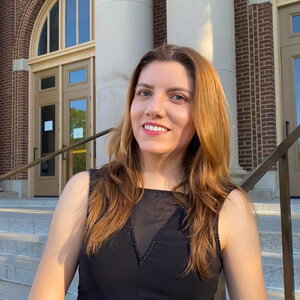
Larissa Migotto
Political Science, "Navigating the Political Landscape: Exploring the Impact of National-Level Polarization on Local Elections in Brazil"
Larissa Migotto's research investigates the interplay between national-level polarization and local elections within Brazil's fragmented party system. Her study aims to explain how polarization discourse propagated by national elites influences alliance dynamics and political discourse at the local level.
...

Owen MacDonald
History, "Caribbean, Amazonia: Race, Migration, Labor, and Gender on the Madeira-Mamoré Railroad"
Owen MacDonald made great progress as a Spring/Summer Lemann Fellow towards his dissertation, “Caribbean Amazônia: Race, Gender, Migration, and Labor on the Madeira-Mamoré Railroad, 1877-1942.” Owen returned to Urbana-Champaign in January after spending 2023 in Porto Velho, Rondônia and Rio de Janeiro conducting archival and oral history research.
...

Luisa Fernandes
Urban Planning, "Reframing Urban Sustainability Through the Perspective of Socio-Environmental Justice"
State planning initiatives in Latin America have been highly influenced by colonial-based urban policy, and still relies in western ideals of development and valorization of technical knowledge. Such an approach is insufficient to address the complexity of spatial issues in cities since it creates unequal opportunities to access urbanized land.
...
Previous
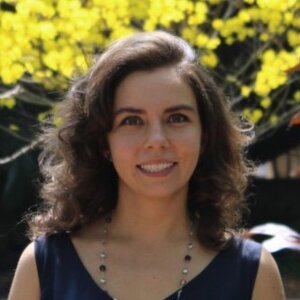
Júlia de Souza Campos Paiva
Urban & Regional Planning, “Assessing the ‘Minha Casa Minha Vida’ housing policy from a racial justice and equality perspective.”
“Minha Casa Minha Vida” (MCMV) is the major public investment in affordable housing in Brazil. Yet, its success is a topic of strong debate among scholars. In this study, I analyze whether the program was successful in overcoming structural racial inequalities in the country and including eligible black and brown households proportionately to their representation in the population at large.
...
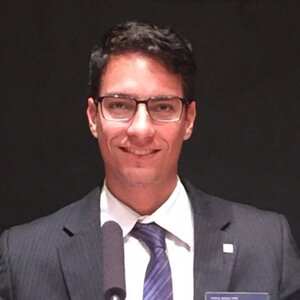
Rafael Guimaraes
Department of Kinesiology and Community Health, “The role of nutrition apps in reducing the risk of diabetes and hypertension in a population with low socioeconomic status in Brazil.”
According to the National Survey on Food Insecurity in the Context of the Covid-19 Pandemic in Brazil, more than 58% of the Brazilian population lives with some degree of food insecurity. More than 33 million Brazilians are in a severe food insecurity situation, making Brazil return to the United Nations’ hunger map. Severe food insecurity is directly associated with risk factors for chronic non-communicable diseases such as diabetes and high blood pressure.
...

Goio Lima
Music, “The bossa nova second-generation music – Today.”
Bossa nova is probably the most well-known of all Brazilian music styles. It is a different version of samba, more elaborate, with more advanced music details. Bossa nova’s first generation's impressive international success from the early 1960s was not experienced by its second generation. They built their songs on the high quality of the first generation’s music and achieved a level of excellence that should be better appreciated internationally.
...

Ana Laura Selzer Ninomiya
Department of Kinesiology and Community Health, “The long-term impacts of the Dona Francisca Health Study, a community-based research project.”
Although community-based research is important for bringing benefits to the population, often times the connections between the community and researchers are weakened or lost. While there is a gap in the literature to examine whether these interventions have long-term results, the importance of maintaining a healthy lifestyle...
...

Owen MacDonald
History, “Caribbean Amazônia: Race, Migration, Labor, and Gender on the Madeira-Mamoré Railroad, 1878-1966.”
Beginning in 1878 during the Amazon rubber boom, two North American investors bought the rights to construct the Madeira-Mamoré railroad to transport rubber from the Brazilian interior to eager North-Atlantic markets. Beginning in what would later become Porto Velho, Rondônia, more than twenty thousand workers laid nearly three hundred kilometers of tracks bisecting the Amazon rainforest from the Amazon River to the town of Guajará-Mirim at the Bolivian border.
...
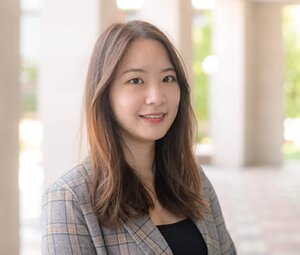
Rafaela Xiayu Summer Chen
School of Social Work, "The Unmet Care Needs of Brazilian Older Adult"
As Brazil transitions into an aging society, its population is at an increased risk of chronic illness, multimorbidity, cognitive impairment, and disability. This demographic shift poses a significant challenge for older adults vulnerable to living with disabilities and needing support, which may result in unmet needs.
...
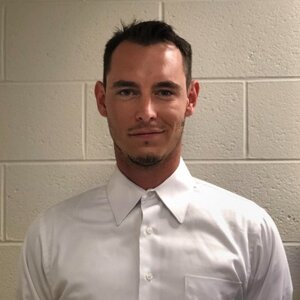
Michael Stablein
Agricultural and Biological Engineering, "Engineering Enhanced Agricultural Yields via Simultaneous Wastewater Treatment and Generation of Algal Biomass"
This academic year the Lemann Fellowship has allowed me to complete my dissertation research. In August 2022, I traveled to the University of São Paulo and the Federal University of São Carlos to grow our chosen algal species on hydrothermal liquefaction wastewater, derived as a byproduct from high temperature and pressure conversion of food waste to generate renewable biocrude.
...

Beatriz Carvalho
Center for Latin American and Caribbean Studies, "My challenge in politics is to exist: an intersectional approach to gendered violence against women of color in Brazilian politics (2011-2022)"
During the past academic year, the Lemann Fellowship has allowed me to tweak my initial research proposal and advance my thesis work. I have refocused my project on a broader overview of how political violence impacts female politicians in Brazil differently—especially regarding the type of violence inflicted upon them.
...

Leonardo Silva Ventura
Center for Latin American and Caribbean Studies, "And now we speak: Abdias Nascimento, Thereza Santos, and Amilcar Cabral toward Black Liberation"
This M.A. thesis examines the political practices and political thoughts of Amilcar Cabral and Abdias do Nascimento, who fought for Global Black Liberation. For this research, I am investigating the interviews, speeches, and documents from Cabral and Nascimento through “Africana Critical Theory,” which examines the “(re)connection of Black radical theory with Black Revolutionary Praxis.”
...

Deanívea Mendes Félix
Department of Spanish and Portuguese, "Under the Knife: Executive Interference and Brazil’s Human-Security State in Health Emergencies"
The Lemann Graduate Fellowship allowed me to focus on my M.A. thesis and graduate courses for my entire academic year. My project started with a curiosity about the effects of health emergencies on our society and how politics can impact the health field. In the summer of 2022, I visited the Brazilian Ministry of Health archives. I found advertising material for HIV/AIDS public health campaigns.
...
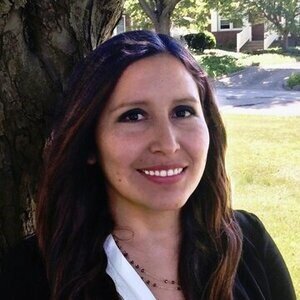
Carmen Gallegos
Department of Spanish & Portuguese, "Quantifying Amazonia: Ecocritical Narratives and the Afterlife of the Rubber Boom in Brazil, Peru and Colombia (20th & 21st Centuries)"
This project asks how the Amazon became both a drama and a number during the economic downfall of the rubber boom economy in Brazil, Peru and Colombia and how this narrative was reinvented through time. How was economic decline captured in photography, infographics and charts as part of an official narrative in which the government and the elites rationalized the Amazon into statistics while constructing nature as alleged valuable raw material?
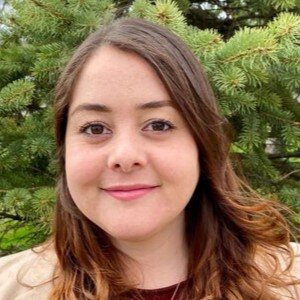
Cintia Martins Freitas
Center for Latin American and Caribbean Studies, "Collective Candidacies and Gender Equality Platforms in Brazil’s 2020 Municipal Elections"
Gender disparities impact Brazil gravely today, and they are manifested in many areas of life, including health, education, politics, and economics. Due to structural challenges, the solution for all of these gaps must come from public policies aimed at reducing gender inequalities.
...

Flávia Batista da Silva
Department of Spanish & Portuguese, "“Righting” Foreign Policy: Bolsonaro’s Electoral Campaign in Brazil and the Venezuelan Crisis"
This research examines the use of foreign policy as electoral tools by presidential candidates during electoral campaigns. Specifically, I will analyze how and for what purpose(s) Bolsonaro framed the Venezuela Crisis during his 2018 presidential campaign in Brazil. I adopt a qualitative methodology that will track materials of Bolsonaro’s campaign through social media. I argue that Bolsonaro used the Venezuela Crisis during his campaign for specific purposes: (i) to generate fear and moral panic in population by connecting his domestic opponent with the Venezuelan regime and (ii) to obtain U.S. support for his campaign and for future government, by adopting the “Make Brazil Great Again” as his motto.

Ana Paula Spranger Correia de Oliveira
Department of Agricultural and Biological Engineering, "Event-based Decision-making for Distributed Brazilian Agricultural Systems"
Inefficiencies are inherent to any production system. In food and agricultural systems, inefficiencies include grain loss, often occurring due to uncertainties in weather conditions and in farm management. Further, farmers often manage several distributed parcels of land in different locations, which significantly increases challenges and risks associated with farm management and asset allocation. Our goal is to validate optimization modeling tools with logistics data for distinctly different regions and types of farms in Brazil. Our long-standing collaboration with ESALQ-LOG provides us a key opportunity for access to relevant data for validation.
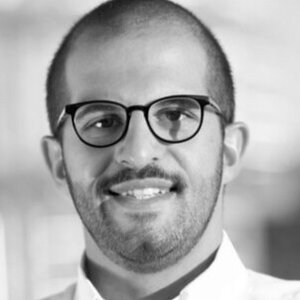
Filipe Pecas Correia
Department of Finance, Do Firms’ Risks Propagate to their Employees?
The severity of the recent Financial Crisis drew attention to how credit shocks are propagated throughout the real economy, which can harm both firms and households. Despite the obvious channels of contagion between firms and the individuals they interact with, the literature analyzing how firms’ idiosyncratic credit shocks affect their employees is still modest. Our interest in this paper is to document how a firm’s credit risk is transmitted to its employees.
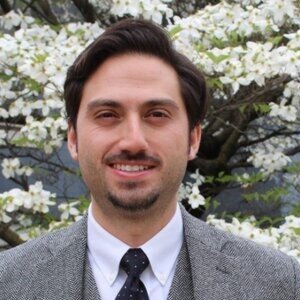
Juan Andrés Suárez Ontaneda
Ph.D. Candidate, Departement of Latin American Literatures and Cultures
I was born and raised in Quito (Ecuador), and I moved to the United States after I won a scholarship to study at Saint Anselm College in Manchester (New Hampshire). As a political philosophy major, I constantly inquired into the role of culture as field to debate and construct the meaning of citizenship and nation. My undergraduate thesis analyzed the role of Vallenato—a musical genre from northern Colombia...
...
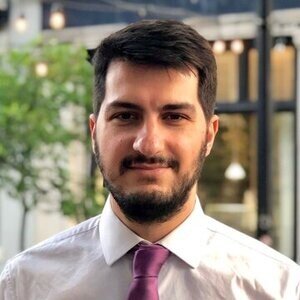
Marcelo Boccato Kuyumjian
School of Music, Performing Samba: Aesthetics, Transactional Modernisms, and Race
Samba’s entry into mainstream Brazilian culture was understood to have resulted from constant collaborations between white and non-white musicians and the music’s ability to represent nation rather than race. My analysis of music sound and discourse shows that the genre became a site for performance of both blackness and whiteness.
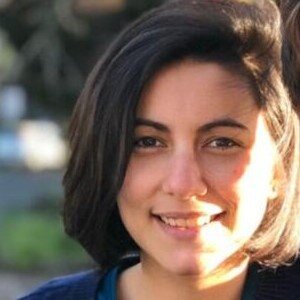
Brunna Bozzi Feijó
Department of Spanish & Portuguese, "The Gendered Face of Development: Brazil and the First United Nations Conference on Women (Mexico City, 1975)"
My research is about the interplay of social movements and state projects in Brazil in relation to the First United Nations Conference on Women, held in Mexico City, in 1975. Domestically, this conference is frequently underscored as the starting point for contemporary feminist movements in Brazil (SARTI, 2004). Internationally, however, expectations for “feminine solidarity” were largely frustrated due to intense disagreements between delegates from developing and developed countries(OLCOTT, 2017). By juxtaposing these two dimensions of the 1975 Conference, the domestic and the international, my research raises questions on the contingent and gendered assumptions regarding the idea of development in 1970s Brazil.
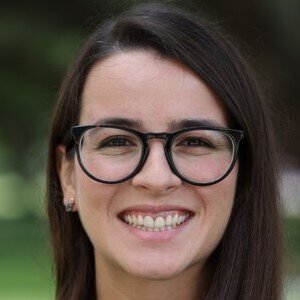
Marília Corrêa
Department of History
My project studies the trajectories of military personnel who were expelled from the armed forces and persecuted during Brazil’s military dictatorship (1964-1985). For decades, scholars studying the Brazilian dictatorship have emphasized opposition between civil society and the institution of the armed forces, a division that my project challenges.
...

Michael Stablein
Department of Agricultural and Biological Engineering
In Brazil, algal systems have shown great potential in remediating wastewater and simultaneously producing a wealth of renewable resources, such as food, fuel, pharmaceuticals, among others. My PhD research focuses on the biological recovery of wastewater nutrients like nitrogen and phosphorus for generation of algal biomass, measured for high value quality in terms of protein, carbohydrates, lipids, and other derivative biometabolite compounds.
...

Amanda Rector
Department of Spanish and Portuguese
Amanda graduated with an M.A. in Spanish and Portuguese at the University of Illinois in 2014. Her research interests are centered around 18th-20th Century Luso-Hispanic Immigration, the Luso-Hispanic Atlantic, travel writing, transnationalism, affect, citizenship, and belonging. Some of Amanda’s academic awards include Spanish and Portuguese Department Small Research Fellowship, Summer 2017.
...
Cassandra A.W. Osei
Department of History
Cassandra’s research interests include Modern Latin America & the Caribbean, African Diaspora in Latin America, Brazil, Racial Inequality, Race, Gender, & Power, Social Geographies of Race. As a doctoral student, her research examines twentieth-century Brazil and modern Latin American history. Cassandra is interested in racial inequality in Brazil, Afro-Brazilian movements, and African Diaspora in Latin America & the Caribbean.
...
Luis Gonzalo Pinilla Gomez
Department of Art History
I have a MFA in Print media from the University of Iowa where my research was oriented towards the interaction between new media, digital technologies, and traditional printmaking techniques. Currently, I am pursuing a Ph.D. in Art History at the University of Illinois Urbana-Champaign focusing in artistic Print media as expanded field during the 1960s and 1970s in South America and pursuing a minor the History of Latin American Photography.
...
John Ben Soileau
Department of Anthropology, For the Forest, the Trees, or the People: The Quilombolization of an Amazonian Peasantry
My dissertation, titled, For the Forest, the Trees, or the People: The Quilombolization of an Amazonian Peasantry, is based on ethnographic fieldwork since 2012 with descendants of quilombo (maroon) communities in the Amazonian municipality of Gurupá, Brazil. The Brazilian government recognizes quilombos as “traditional populations” and grants them collective title to their historically-occupied territory.
...
Kelly Norell Senters
Department of Political Science
Concentrating in comparative politics, I study decentralization, elections, corruption, and political behavior in Latin America. Many of the themes comprising my research agenda are found in my dissertation in which I quantitatively assess the causes and consequences of subnational fragmentation – a process by which local communities fragment into two or more new communities – in Brazil.
...
Thais R.S. Sant’Ana
Department of History at the University of Illinois
Thais Sant´Ana is a PhD candidate at the University of Illinois Urbana-Champaign. Built on extensive archival research and supported by the Lemann Center for Brazilian Studies, her current research focuses on the urban and social history of the Amazon and contributes to the debate about the making of modern Brazil.
...
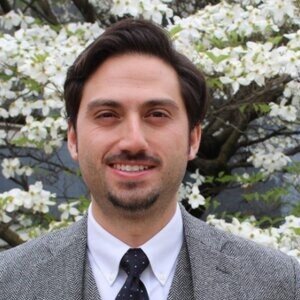
Juan Andrés Suárez Ontaneda
Departement of Latin American Literatures and Cultures
I was born and raised in Quito (Ecuador), and I moved to the United States after I won a scholarship to study at Saint Anselm College in Manchester (New Hampshire). As a political philosophy major, I constantly inquired into the role of culture as field to debate and construct the meaning of citizenship and nation. My undergraduate thesis analyzed the role of Vallenato—a musical genre from northern Colombia...
...
Lucas R. Trevisan
Department of Agriculture and Biological Engineering
My research is related to the Brazilian agriculture and agro-industrial sectors. Additionally, it involves post-harvest losses in Brazilian scenarios and the effects of typical Brazilian conditions on grain quality by quantifying dry matter losses related to grain respiration during storage. The activities included adapting instrumentation system, developing experimental design and collecting data on soybean storage.
...
Kelly Norell Senters
Department of Political Science
Concentrating in comparative politics, I study decentralization, elections, corruption, and political behavior in Latin America. Many of the themes comprising my research agenda are found in my dissertation in which I quantitatively assess the causes and consequences of subnational fragmentation – a process by which local communities fragment into two or more new communities – in Brazil.
...
Marília Corrêa
Department of History
My project studies the trajectories of military personnel who were expelled from the armed forces and persecuted during Brazil’s military dictatorship (1964-1985). For decades, scholars studying the Brazilian dictatorship have emphasized opposition between civil society and the institution of the armed forces, a division that my project challenges.
...
Lenore E. Matthew
School of Social Work
Maraya Balhego de Lima
Department Urban and Regional Planning, Haitian Presence in Southern Brazil: Its Present and Future Impact on Immigration Policy
Maraya’s research Haitian Presence in Southern Brazil: Its Present and Future Impact on Immigration Policy examines the contemporary migration circuit between Haiti and Brazil. Her work examines the impacts and influence of migrations as it interacts with national, state, and local government policy. Maraya is currently and associate planner at Salt Lake City Corporation.
John Marquez
Department of History, John’s research Community, Culture and Conflict: The Lives of Enslaved and Free People of African Decent in Late-Colonial Rio de Janeiro
John’s research Community, Culture and Conflict: The Lives of Enslaved and Free People of African Decent in Late-Colonial Rio de Janeiro focusses on the vice-regal capital of colonial Brazil. It examines social relations in slave society in order to understand the tension between the social and cultural proximity between slaves and free people amid differences of social hierarchy and legal status.
...
Lenore E. Matthew
School of Social Work
Renato Schwambach Viera
Department of Agricultural and Consumer Economics
Annie Contractor
Department of Urban and Regional Planning
Annie works as an urban planner, applying social science principles to work toward pay and workplace equity. This work includes workplace studies in local markets, assessing institutional commitments and worker perceptions of equity in the workplace. Her professional interests are currently focus on the United States.
...
Hapsatou Wane
Program in Comparative and World Literature
Hapsatou is an Assistant Professor at Georgia Southern University-Armstrong Campus in the Department of Literature. Her research centers on Francophone and Anglophone African and Afro-Brazilian literature, gender and women studies, postcolonialism, indigenous critical theory autobiographies and memory.
...
Rafael P. Ribas
Department of Economics, Direct and Indirect Effects of Cash Transfer on Labor Supply and Entrepreneurship: The case of Bolsa Família in Brazil
Rafael was born in Santa Rosa-RS, Brazil. He received his B.A. in Economics from the Universidade Federal do Rio Grande Sul (UFRGS) in 2004. In 2006, he received his M.A. in Economics from the Universidade Federal de Minas Gerais (UFMG). His Master’s thesis is on measuring poverty mobility and dynamics of income inequality.
...
Krystal Maria Montesdeoca
Program in Agricultural and Consumer Economics, Department of Agricultural and Consumer Economics,The Economics of Safrinha Succession Cropping System
Krystal Montesdeoca earned a B.A. in Spanish and Economics from Illinois State University. Upon graduation she received a Rotary International Ambassadorial Scholarship to study at Pontifícia Universidade Católica in Rio de Janeiro for two years where she studied Business Intelligence and conducted volunteer work.
...
John-Ben Soileau
Department of Anthropology Research Title: Tensions of Practice: Açaí and the Commodification of Subsistence Agriculture in Brazil’s Lower Amazon
John-Ben received his BA in cultural anthropology from the University of New Orleans, and his MA in Latin American Studies from Tulane University, also in New Orleans–his hometown. The Lemann fellowship will support his third year of the PhD program in sociocultural anthropology, during which time he will analyze preliminary fieldwork results and prepare for long-term ethnographic fieldwork. His dissertation project examines the participation of a rural Afro-Brazilian community in the regional and international açaí market.
Isabel Freitas Peres
College of Law, Engaging the Brazilian Diaspora in Development – A Proposal for Brazilian Diaspora Bonds
Isabel Freitas Peres, originally from Joinville, Brazil, earned her bachelor’s degree in Law at Escola de Direito de São Paulo da Fundação Getulio Vargas in 2010, as well as an LL.M. degree at the University of Illinois College of Law in the same year. After finishing her LL.M. degree, she also earned a master’s in Law and Economics from the European Master in Law and Economics program through studies in Italy and Germany.
...
Chris Wilhelmi
Department of Agricultural and Biological Engineering, Preventing Post-Harvest Soybean Losses in Brazil
Chris Wilhelmi received his B.S. in Agricultural and Biological Engineering with a minor in Food Science from the University of Illinois in the fall of 2012. His undergraduate work concentrated on food and biological processing, with a personal interest in grains. He began his master’s work the following spring with a focus on Brazilian soybeans.
...
Marcelo Boccato Kuyumjian
School of Music
Performing Samba: Aesthetics, Transactional Modernisms, and Race Samba’s entry into mainstream Brazilian culture was understood to have resulted from constant collaborations between white and non-white musicians and the music’s ability to represent nation rather than race. My analysis of music sound and discourse shows that the genre became a site for performance of both blackness and whiteness.
2012-2013
Pamela Cappas-Toro
Department of Spanish, Italian and Portuguese, Race and Dictatorship
Laura Chinchilla
Department of Spanish, Italian and Portuguese, Detecting the Americas: Travel, Crime and Conspiracy
Rejane Dias
Program in Bilingual Education, Division of Language & Literacy, Department of Curriculum and Instruction, Teachers’ Perception of Bilingualism and Biculturalism: The Case of Brazilian Borderlands
Vivian Felicio
Program in Curriculum and Instruction, College of Education, Linguistically and Culturally Relevant Literacy Practices for Speakers of Brazilian Portuguese Language
Erin McKenna
Department of Recreation, Sports and Tourism, Converging Cosmopolitanism in Salvador’s Alternative Tourism Sector
Bradley R. Skousen
Department of Business Administration, Entrepreneurship and Innovation in Brazil
Paulo Henrique Vaz
Department of Economics, Brazil Long-Term Economic Grouth: Investigating the Puzzle from a Fim-level Perspective
Marcelo Boccato Kuyumjian
Program in Jazz Studies. Division of Jazz Studies, School of Music, Elis Regina’s Quartet and its Interpretation of Samba: Issues in the Process of Innovation of Popular Music in Brazil
Marcelo Boccato Kuyumjian, originally from Campinas-SP, earned his bachelor’s degree in Popular Music at UNICAMP in 2007, as well as a Master’s of Music degree at the University of Iowa in 2010. During his tenure at U of Iowa, he was a teacher assistant in the Department of Jazz. He is currently pursuing his DMA in Jazz Studies at University of Illinois. As a performer and researcher, Marcelo is interested in different ways in which Jazz and Brazilian music interacts.
Vivian Carla Felicio
Program in Curriculum and Instruction, College of Education, Linguistically and Culturally Relevant Literacy Practices for Speakers of Brazilian Portuguese Language
Vivian Felicio received her B.A. in Portuguese and English Languages and literature from the University of Sagrado Coração (USC) São Paulo, Brazil, and her M.A. in Teaching English as a Second Language (MATESL) at the University of Illinois at Urbana-Champaign (UIUC). Currently, she is a Ph.D. student in the College of Education at University of Illinois in the Department of Curriculum and Instruction.
...
Diego Sanches Correa
Program in Political Science, Department of Political Science, Switching Sides: Income Redistribution and Realignment of PT’s Electoral Bases
Diego Correa studies the association between programs of income redistribution and presidential elections. More specifically, he investigates how the recent spread of Conditional Cash Transfer programs across Latin America has affected the electoral performances of incumbent presidential candidates. In the case of Brazil, the focus is on the Bolsa Família program, and the 2002, 2006, and 2010 electoral contests.
Narlan Matos Teixeira
Program in Brazilian Literature, Department of Spanish, Italian and Portuguese, The Genesis of Post-Modernity in Brazil: Notes on Industrial Design, Tropicalia and Counterculture
Narlan Matos earned a BA from the Federal University at Bahia, where he was awarded several research fellowships. He holds a Master of Arts degree from the University of New Mexico, where he was also a TA. Has worked for nearly six years as a TA at the Department of Spanish, Italian and Portuguese at the University of Illinois at Urbana Champaign...
...
Carla da Silva
Program in Portuguese Studies, Department of Spanish, Italian and Portuguese, The Journey Within: travel narratives in Brazilian cinema
Carla da Silva earned a dual B.A. in English and Portuguese along with a teaching certificate from the Federal University of Rio de Janeiro (UFRJ). She also earned an M.A. in American & English Literature from the State University of Rio de Janeiro (UERJ). Passionate about teaching, she spent more than a decade teaching ESL in Brazil. Since 2007, she has worked as a teaching assistant of Portuguese at the University of Illinois. Her current academic interests are Brazilian literature and cinema and the teaching of Portuguese as a second language.
Euler P. G. de Mello
Program in Economics, Department of Economics, Extending the Maternity Leave in Brazil: An Assessment